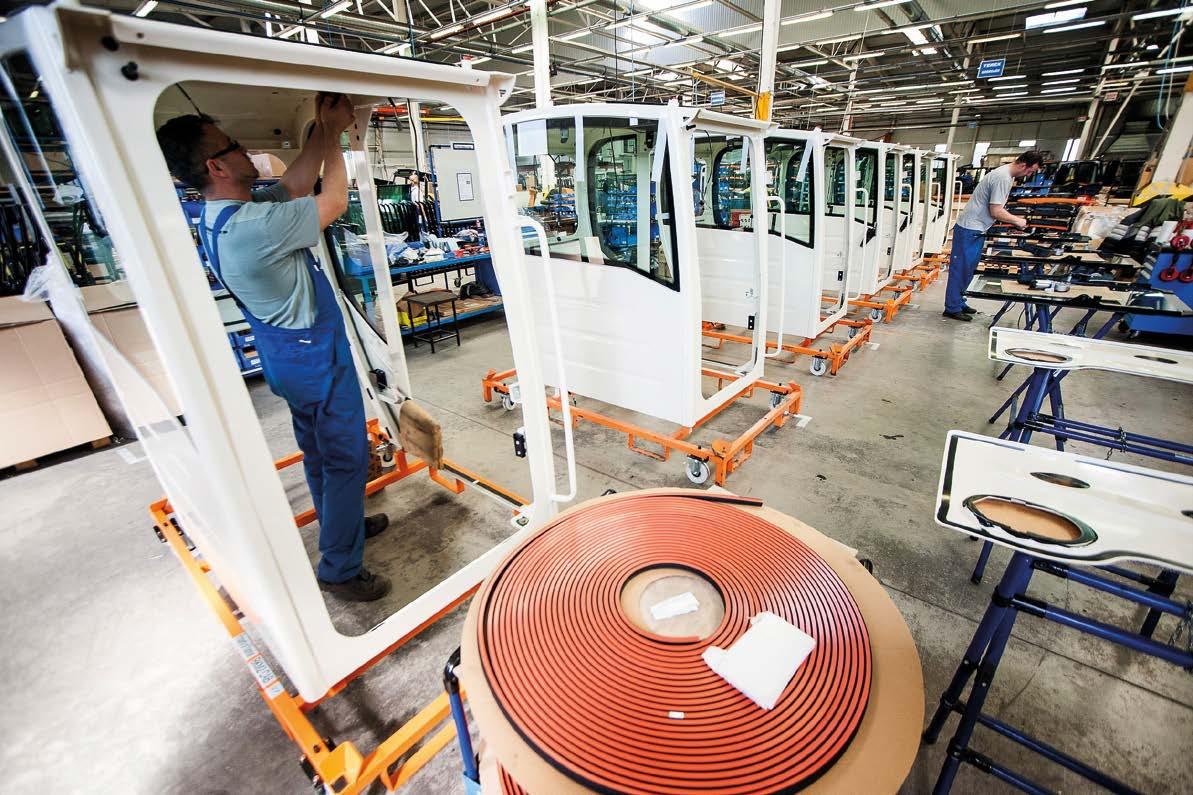
3 minute read
STANDARD & LEGISLATION
© Adobe Stock
STANDARD & LEGISLATION - UCIF Informs
Cleaning Processes Are Now Even More Important
Marcello Zinno
UCIF – Italian Surface Treatment Equipment Manufacturers’ Association, Milan, Italy info@ucif.net
Now that we are beginning to glimpse the return to normal life, it is time to start to get going and look to the future again. As after all major disasters, a period of great commitment awaits us in order to regain full control of our lives and our work. Historically, it is precisely in moments like these that the most ambitious and best projects have come to life: thanks to their spirit of survival, human beings are driven to invest more in the future, using their innate ability to internalise and exploit past experiences. Will it be a new Renaissance? Certainly, there is an unprecedented factor: for the first time, all states, all governments, all men have had to face and fight the same enemy. In this global battle, we have realised how important it is to take care of ourselves and clean the surfaces we come into contact with. UCIF member companies have always dealt with surface treatments and finishes, for which adequate preparation of the substrate to be treated, including cleaning, is essential. In the last thirty to forty years, great strides have been made in the industrial cleaning sector in particular. Increasingly complex and efficient technologies have been applied to achieve more and more effective results. At the same time, however, a huge amount of pollutants has been produced, controversial water purification issues have arisen, and enormous quantities of resources have been used. In short, cleaning has definitely improved the quality and performance levels of products, but it has also had a negative impact on the environment. This is no longer tolerable. There is a need to invest more and more in research and to introduce new treatment and production processes with an ever-decreasing environmental impact, as it is now recognised that the current economic development model is among the causes of environmental disasters, extreme weather events, and climate change. In recent years, in fact, there has also been a growing realisation that sustainable growth brings considerable economic, ethical, and environmental benefits. The circular economy approach, based on the principle that someone’s waste can become a resource for others, has begun to take shape. The philosophy behind this new economic model is that objects never reach the end of their life, but they are “reborn” for other uses. This means saving money (e.g. extraction, production, and disposal costs), consuming fewer raw materials, and reducing one’s own polluting impact on the environment. It is therefore necessary to rethink production cycles right from the design stage. The use of smart technologies in manufacturing processes is of the essence, as well as the production of energy from renewable sources and the large-scale adoption of separate waste collection processes. The question now arises: is it possible to design “environmentally friendly” industrial plants without sacrificing efficiency? The answer is definitely positive. Our companies have already succeeded in creating high-performance, environmentally friendly finishing systems and treatments while also meeting the other requirements of their customers. With a view to the circular economy principles, several manufacturers have started to look for solutions to reduce the amount of processing and energy waste, implement industrial recycling operations, and make new resources available. “Zero discharge” is no longer a mirage but an attainable goal. We can therefore say that it is now possible to clean effectively, without necessarily making the world dirty. Actually, we have found that doing so even provides a significant added value!










